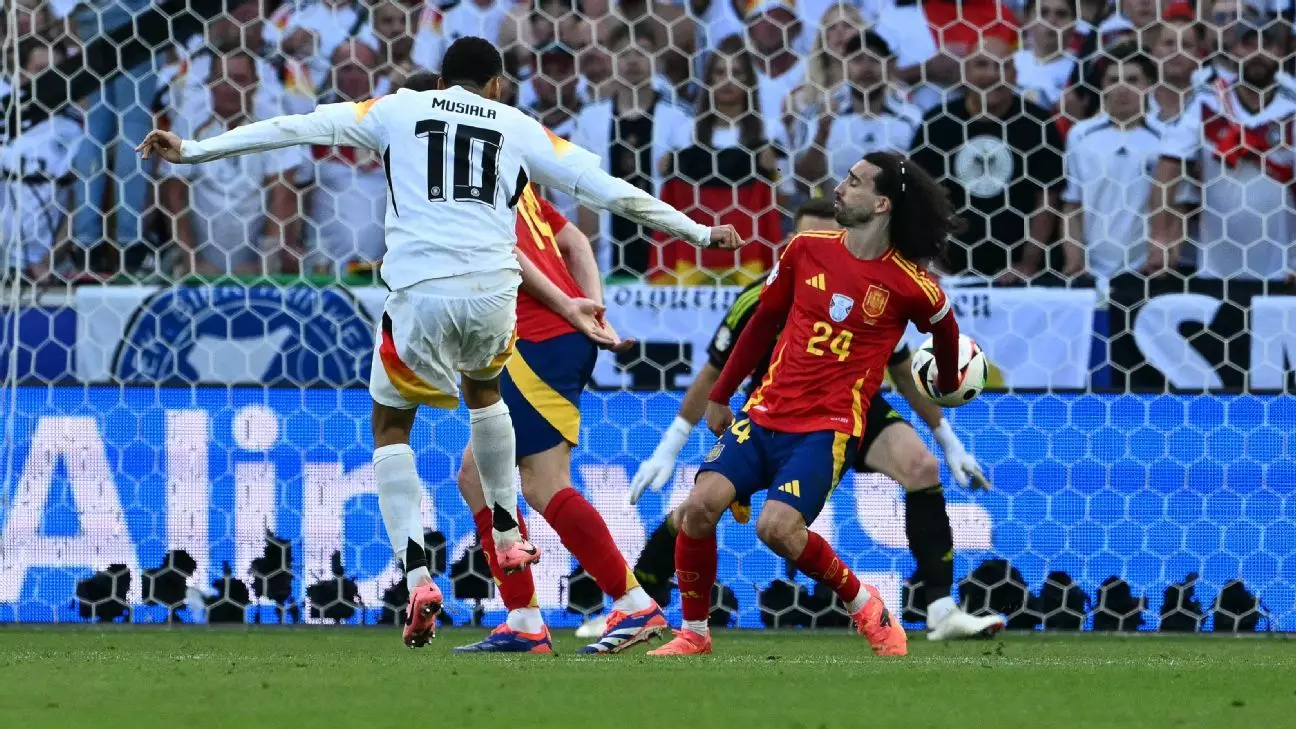The thrill of the UEFA Euro 2024 quarterfinal match between Germany and Spain was marred by controversy and a pivotal refereeing decision that has since drawn widespread scrutiny. In a game characterized by intensity and high stakes, the absence of a penalty for a handball incident involving Spanish defender Marc Cucurella emerged as a significant talking point, particularly after a post-tournament report by UEFA’s Referees’ Committee highlighted the oversight. This incident not only shaped the outcome of the match but also raised broader questions about the standards of officiating in high-pressure situations.
As the clock neared the end of the first period of extra time with the score tied at 1-1, a well-placed shot from Germany’s promising talent, Jamal Musiala, struck Cucurella’s arm. This event ignited outrage among the German players, who immediately sought redress from referee Anthony Taylor, vehemently arguing that the ball’s trajectory warranted a penalty call. Their discontent was amplified when the Video Assistant Referee (VAR), Stuart Attwell, corroborated Taylor’s initial decision. This unique dynamic—where the on-field decision was confirmed despite protests—illustrates the complexities and challenges in officiating, particularly in high-stakes matches where emotions and aspirations run high.
Spain ultimately emerged victorious, sealing a dramatic 2-1 win through a late goal from Mikel Merino in the 119th minute. While this success propelled Spain to the final, where they would go on to defeat England, it left Germany grappling with the feelings of injustice and disappointment. The ramifications of the missed handball call lingered, as it not only shifted the narrative of the match but also fueled conversations about the efficacy of VAR—a system intended to aid referees yet sometimes criticized for compounding the controversies already present on the pitch.
In the aftermath of the match, UEFA’s Referees’ Committee stepped in to review the incident, leading to a pivotal conclusion: Germany should indeed have received a penalty for the handball offense. This revelation underscores the importance of continuous oversight in officiating standards, highlighting how pivotal decisions can dramatically shape the outcomes of tournaments. Chief refereeing officer Roberto Rosetti had previously emphasized the guidelines surrounding handball, with a focus on the position of arms in relation to the body. This premise, however, failed to translate into practice during the match, raising questions about the consistency of such interpretations at critical junctures.
The missed penalty during the Euro 2024 match serves as a stark reminder of the thin line between success and failure in international football. As teams strive for glory, they are often at the mercy of human judgment, now augmented by technology yet still susceptible to error. The discourse generated by this incident should translate into actionable changes within UEFA and its officiating framework. Clarity in the application of rules, combined with better training for referees and VAR personnel, is essential to foster a fairer competitive environment moving forward. Germany’s missed opportunity at Euro 2024 should prompt decisive measures that enhance the integrity of the game and preserve its spirit.

Leave a Reply